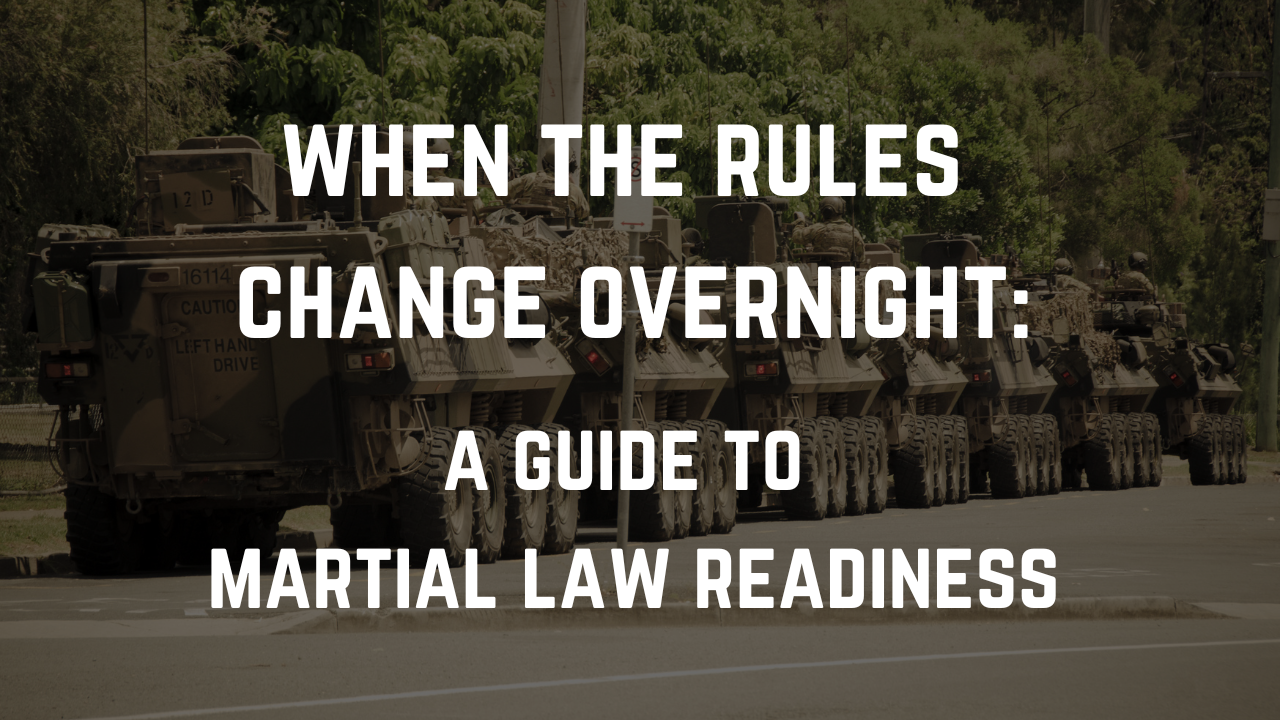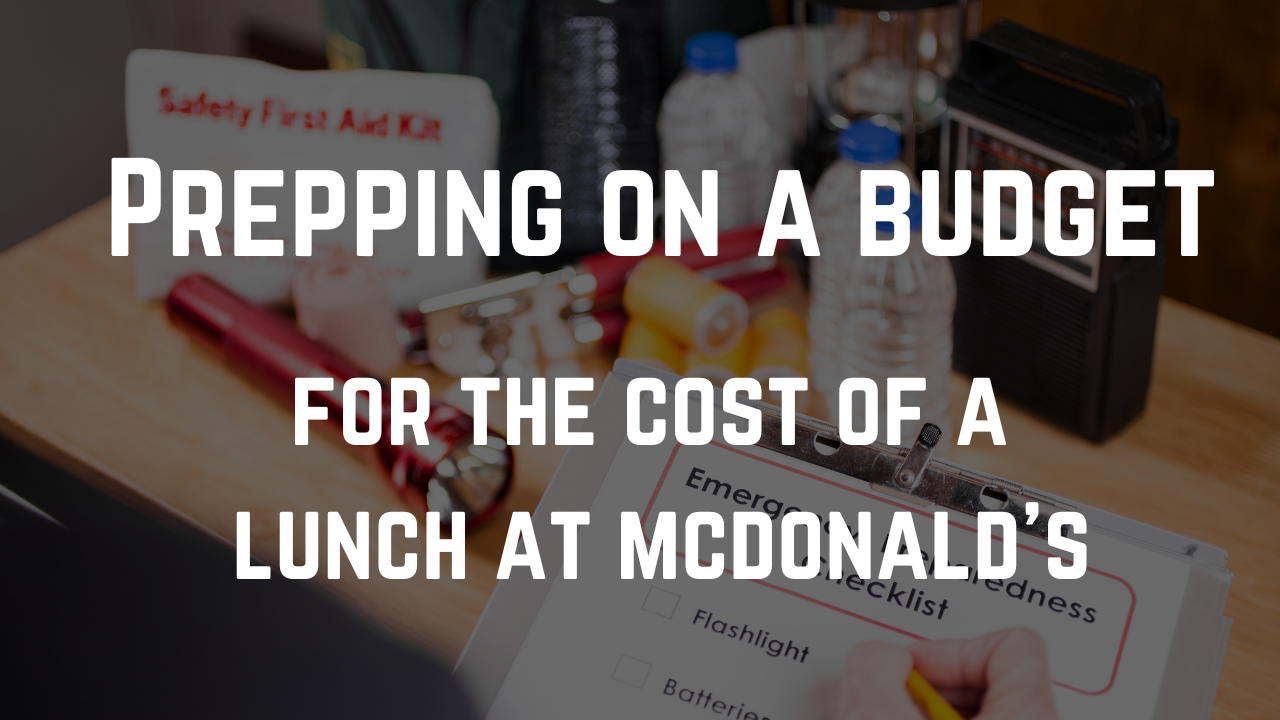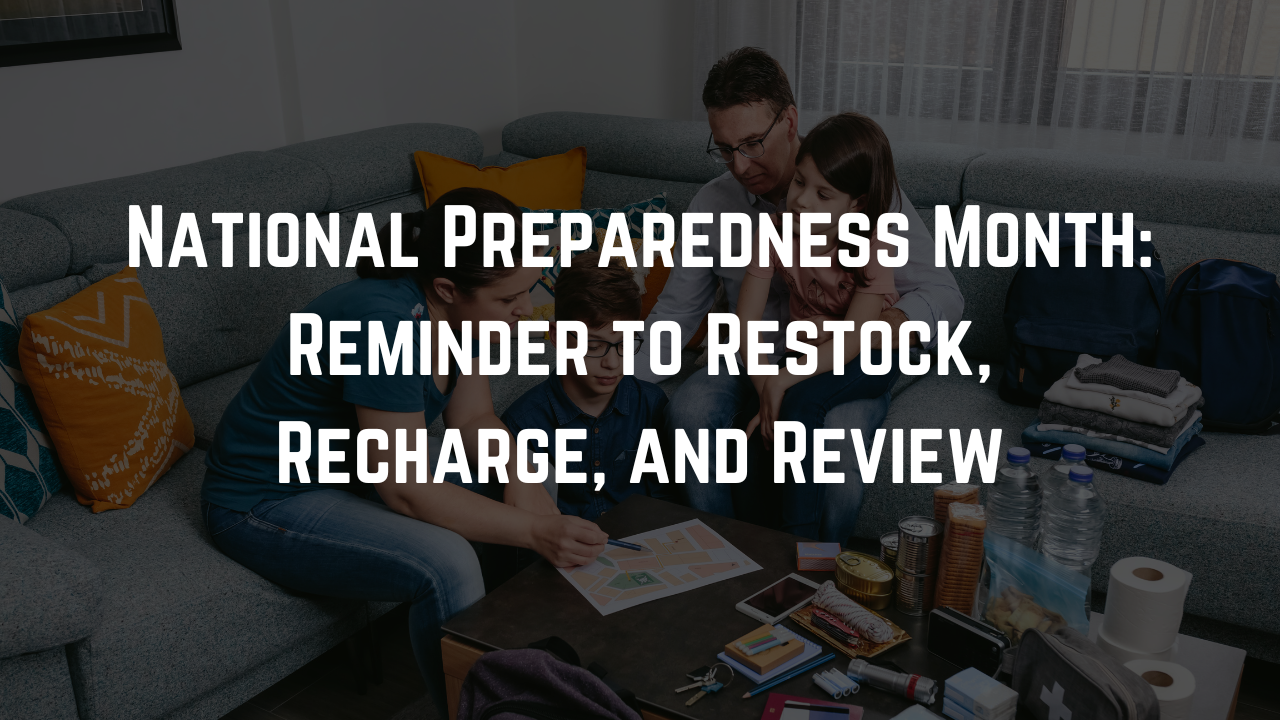
Life is unpredictable, and the unexpected can happen at any moment. Whether it’s a natural disaster, a sudden financial setback, or an unexpected health issue, the feeling of being unprepared can create stress, anxiety, and overwhelm.
But there’s good news: being prepared for the unexpected can actually improve your mental well-being and reduce anxiety.
While many people associate “prepping” with survivalist-type gear and extreme scenarios, the true value of preparedness lies in its ability to help us feel more in control of our lives and reduce the emotional toll that uncertainty can bring. Here are a few ways readiness can be a powerful tool for mental wellness and how the simple act of preparing for the unknown can bring peace of mind.
1. A Sense of Control in an Uncertain World
One of the most common sources of stress is the feeling of having no control over what happens in life. We live in a world where we can’t predict every outcome, and many external factors are beyond our control. This can lead to a sense of helplessness when faced with challenging or sudden situations.
By taking proactive steps to prepare for the unexpected, we regain a sense of control. When you create an emergency plan, build a financial safety net, or ensure that your household is stocked with essentials, you’re making choices that can mitigate the impact of the unknown. Even though you can’t control every possible outcome, you can control how you respond.
This sense of agency is powerful. Knowing that you’ve taken steps to prepare helps to ease anxiety because it replaces feelings of powerlessness with a sense of empowerment.
2. Preparedness Reduces Fear of the Unknown
A large part of anxiety stems from the fear of the unknown. When we don’t know what to expect, we tend to imagine the worst-case scenario. The mind starts to spiral, and worries grow. This is especially true when thinking about emergencies or disruptions, as we often assume the worst, which only heightens our stress levels.
However, preparedness works by addressing those fears directly. When you prepare for an emergency, you’ve already thought about possible scenarios and have created strategies to deal with them.
This mental rehearsal helps reduce the unknown because you’re no longer left in a state of uncertainty.
3. Increases Mental Resilience and Adaptability
When you anticipate potential problems and build your ability to cope with them, you naturally develop a more adaptable mindset. You’re not caught off guard by adversity—instead, you’re better equipped to face it head-on.
Resilience is all about how we respond to challenges. The more we prepare ourselves, whether mentally, physically, or emotionally, the better we can manage stress when it comes our way.
You develop problem-solving skills, a greater sense of confidence in your abilities, and a belief that you can weather any storm, no matter how intense.
Preparedness allows you to face uncertainty with greater confidence, which reduces the emotional weight of facing the unknown.
4. Reduced Decision Fatigue in Crisis Situations
When disaster strikes or an emergency occurs, the last thing you want to experience is a brain freeze. In moments of crisis, we are often forced to make quick decisions, and these choices can feel overwhelming. Decision fatigue is a real phenomenon, and it’s amplified in high-stress situations.
Being prepared helps alleviate this issue. When you’ve already established plans and systems in place, you reduce the need to make decisions on the fly.
For example, if you’ve already mapped out an evacuation route, stocked your emergency supplies, or created a list of people to contact, you don’t have to waste mental energy on what to do next in a time of crisis.
This level of preparedness allows your brain to focus on action rather than decisions. By having clear steps to follow, you preserve mental clarity to make critical decisions in stressful moments.
5. Promotes a Sense of Calm and Well-Being
Lastly, preparedness fosters an overall sense of well-being. When you take steps to plan for the unexpected, you’re investing in your future peace of mind.
Knowing you’ve done everything possible to reduce potential risks helps you feel calmer and more balanced in the present.
There’s a certain satisfaction and comfort that comes from having a plan in place. It allows you to approach life’s challenges with more positivity and less fear.
With preparedness, you’re not constantly waiting for a crisis to happen—you’re focusing on creating solutions and strategies that will carry you through tough times, no matter what happens.
Embrace Preparedness for Mental Well-Being
The next time you think about emergency preparedness, remember that it’s not just about stocking up on supplies or having a plan in case disaster strikes – it’s also about your mental health.
By preparing for the unexpected, you’re taking care of your mind, reducing your stress, and building a foundation of peace and well-being that will support you through the unpredictable journey of life.
So, take a deep breath, start small, and get ready for what lies ahead. Your future self will thank you.
How do you feel about preparedness now? If you’re ready to dive into the process, check out our other resources for getting started on your preparedness journey!


